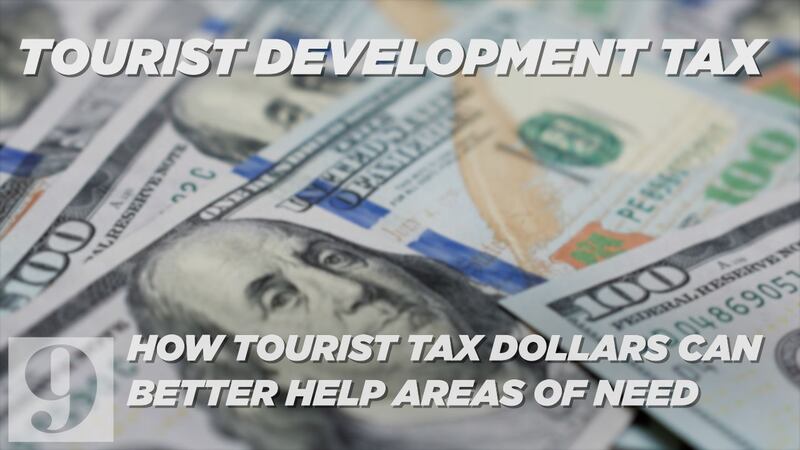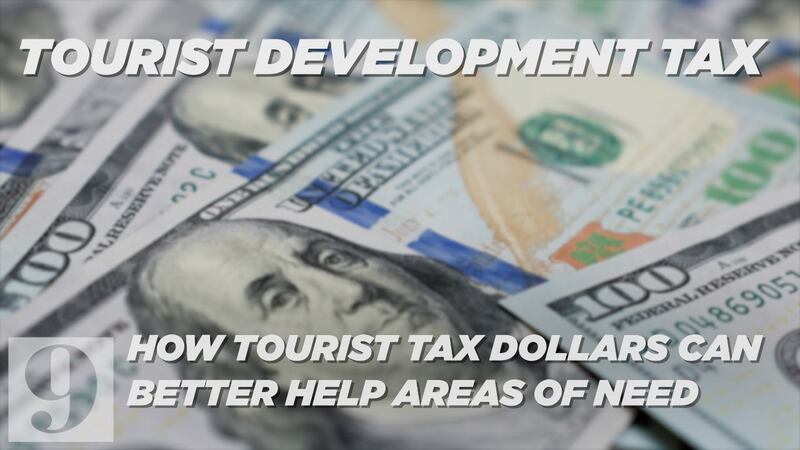ORLANDO, Fla. — For the first time, Orange County could tap into a different tax to help increase funding for dire social issues.
▶ WATCH CHANNEL 9 EYEWITNESS NEWS
State law only allows three counties to levy what’s known as the Tourist Impact Tax, added to hotel or short-term rental stays. But only one county is doing it, and part of the revenue helps with its affordable housing needs.
Orange County Mayor Jerry Demings is considering whether it could be done here. In part, because there’s been no interest in expanding how the county can use the current Tourist Development Tax levied.
The goal of the decades-old tax is to tax tourists to pay for the things they use when they come into the Orange County area.
When it was implemented, though, no one has any idea how much money it would eventually generate.
“At that time, it was a two cents hotel tax, so it was going to raise $2.4 million dollars a year, now it’s almost $400 million,” Jane Healy said. “The problem now, it’s too much money for too few uses.”
Read: Orange County commissioners talk decreasing funding to ‘Visit Orlando’
Jane Healy was the chair of county’s Tourist Development Task force, which worked to prioritize spending the money within the bounds of state law.
In Orange County, the focus has been on the Orange County Convention Center, the Amway Center and the Dr. Phillips Performing Arts Center, and a large chunk is given to Visit Orlando for tourism marketing.
In 2023, Visit Orlando received about $107 million through the TDT -- nearly double what received back in 2018, just five years ago.
For perspective, the entire state of Florida only spends $80 million on tourism marketing.
Healy questioned why the funds have remained so restricted.
“I think the tourism industry wants to keep it as their own,” Healy said.
Orange County is now focused on another tax -- the Tourist Impact Tax. It was an idea originally proposed by Healy this summer when she and others met to prioritize spending for the Tourist Development Tax.
“This is one small component that could work if the legislation is written to where it doesn’t do harm to the industry. I’m not supporting something that is going to create harm to the industry,” Demings said of the Tourist Impact Tax.
Three counties are currently allowed to levy the one-percent tax on transient rental units. State law allows the tax to be levied in designated areas of critical state concern.
The only county currently levying the tax is Monroe County, which is the Florida Keys.
Monroe County Mayor Holly Merrill Raschein told 9 Investigates the revenue is split between the county’s general fund and the Land Authority, which buys land and, in some cases, builds affordable housing to help those who work and live in the Keys.
Read: Florida Citrus Sports releases new renderings for $400M Camping World Stadium proposal
“The ability to spend this extra funding to offset that need for workforce housing is critical,” Raschein said. “And I think it’s important to actually look at the physical name of the tax. It is called the Tourist Impact Tax. And so, it goes to help sort of offset the impact that tourists have to our community -- whether it’s using our water or using our roads, using our services.”
Monroe County, which is a relatively small county, has collected about $13 million dollars a year through this tax. Expanding it to other counties requires changing state law and the support of the tourism industry.
We asked how Demings plans to generate support for an expansion outside of lobbying the Florida Association of Counties.
“The devil is always in the details,” he said. “So as you begin to negotiate and advocate, you have to make sure what you’re advocating for doesn’t create unintended consequences.”
Read: Orange County tourism gets economic boost after months of declining dollars
Raschein thinks it’s time for the other counties to consider expanding the uses of the Tourist Development Tax, something she believes there may be more support for considering the needs of all counties in the current economy.
For people like Healy, there are long-term concerns for the area with the industry protecting its tax while its own employees scrape by.
“They control everything,” Healy said. “I don’t know why they won’t support them. This helps them.”
Click here to download our free news, weather and smart TV apps. And click here to stream Channel 9 Eyewitness News live.
©2023 Cox Media Group








